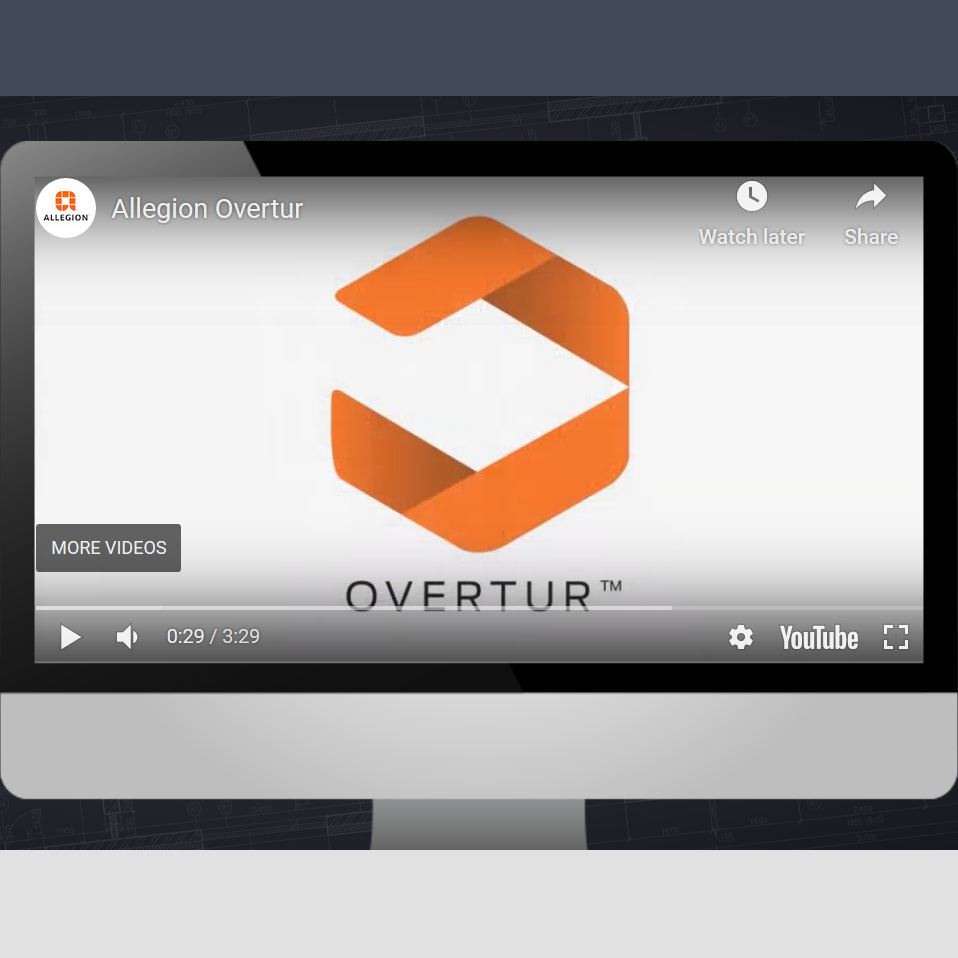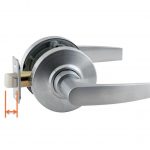 Before I left the world of specwriting to focus full-time on codes, I worked on countless projects that also had a security consultant on the team. And I’ll say without hesitation, it was always a much better experience working with a security consultant than working without one.
Before I left the world of specwriting to focus full-time on codes, I worked on countless projects that also had a security consultant on the team. And I’ll say without hesitation, it was always a much better experience working with a security consultant than working without one.
By then, most of my projects had some sort of access control, from an elementary school with a simple intercom and electric strike at the main entrance, to a state-owned data center with multiple-door interlocks and vascular biometrics. It was always refreshing to sit at the table with someone who spoke my language and didn’t look at me like I was from Venus. Well, except for the security meeting at the Museum of Fine Arts in Boston that was held on the due date for my 3rd child. Everyone at the table was looking at me funny that day.
Coordinating the hardware specification and hardware sets with the security plan and specification was always a challenge, but it was definitely preferable to the projects where the access control was provided after the fact. As the hardware consultant on those projects, I had no idea which doors would end up with readers or how the hardware would need to function, but somehow I still got the call when something wasn’t working right on move-in day.
I’m thinking about security consultants and integrators today for two reasons. First, I’m working on a webinar about codes that will be part of our Security in 30 series. A half-hour is not a long time when I’m talking about codes (that’s an understatement), so I’m open to suggestions on what a security consultant or integrator would want to learn in that amount of time.
Second, an article from Security Info Watch just arrived in my inbox, and it was written by Brian Coulombe of DVS, a division of Ross and Baruzzini. (Coincidentally, DVS was the security consultant on the aforementioned MFA project with the security meeting on my daughter’s due date.) The article, entitled Tech Trends: The Door Hardware Dilemma, begins…
Door hardware is a tough subject: limitless part numbers, an evolving technology landscape, and a library of jargon unto itself make understanding the intricacies of door hardware seem like a PhD-level exercise. As security consultants and engineers, the onus is, of course, on us to make sure door hardware is coordinated with the security access control and alarm monitoring design.
EXACTLY! But the most exciting part is that Brian’s article is about how Allegion’s Overtur software helps to manage the door hardware information for any project and enables real-time collaboration between the project team and the door hardware consultant. YES! Imagine the impact that improved communication and coordination can have on the doors and hardware!
You can read Brian’s article about Overtur here, and learn more at discover-overtur.allegion.com.
You need to login or register to bookmark/favorite this content.





I am retired for over three years now, but I can speak from a lot of experience. Try as we might, getting the security specs and drawings to match up with the finish hardware specs is an uphill struggle. A large part has to do with the owner contracting directly with their own independently chosen access control and/or security vendor. Then, when we all meet at the electronic hardware and security coordination meeting in the job trailer as the project is well under way, we find out that not much has been coordinated between the various trades. The result is frustration between the parties involved, precious time is lost, change orders will need to be generated (and begrudgingly approved) and the general contractor is really having a fit because his construction schedule will now be impacted. There have been plenty of F-bombs dropped at these meetings as well! This happened on way too many projects and should have never happened. Still, they all manage to get resolved, eventually, and most often, expensively!
This situation is avoidable, so if you are not a part of the problem, then you will not be offended by my following personal comment/opinion on specifications.
I strongly believe that finish hardware specifications (especially those saturated with electronic hardware) should be written by verified and experienced AHCs (or EHC’s) who are either totally independent, or employed by a hardware distributor and not employed by a large hardware manufacturer. Why? Because when hardware specs are written by commission-driven manufacturer’s reps, there is all too often a lot of ‘fluff” in the specification, such as unnecessary options and unnecessary products, and they want to drive the hardware spec, and package, in only one direction- down their street!. It is a challenge enough to get clear coordination between the various trades and parties… the access control system, the fire-alarm system, the security system, the electrical contractor, the general contractor and the hardware distributor/supplier, without compounding the situation by adding options and items to electronic hardware, simply to inflate the value of the hardware package and, ultimately, the commission. My personal opinion has always been that the AHC’s duty, as a spec writer, is to meet the needs of the end user/owner. This strengthens the reputation and the integrity of the door and hardware industry, the AHC (hardware consultant) and the hardware distributor. Everyone has good intentions, but common sense dictates that everyone who is employed also has to follow their employer’s business model. If we can strike a good balance as spec writers, and show that we have the owner’s interests at heart, as well as our employer’s interests, then we all win. A well written and closely coordinated finish hardware specification can help to eliminate, or at least diminish, these electronic hardware coordination problems.
Anyway, don’t take offense… it’s just my two cents. It’s funny, you would think that after retiring, that I wouldn’t care about these things, but I do. I believe the perception of the AHC (and all the various other forms of DHI certification) is not what it used to be and needs to be dusted off, polished up and actively supported and maintained.
I’m sorry that I make my job look easy, it is really very difficult. That’s my favorite line.
Can anyone recommend reliable health and safety consultants near me? Looking for professionals who can help ensure compliance and improve workplace safety.